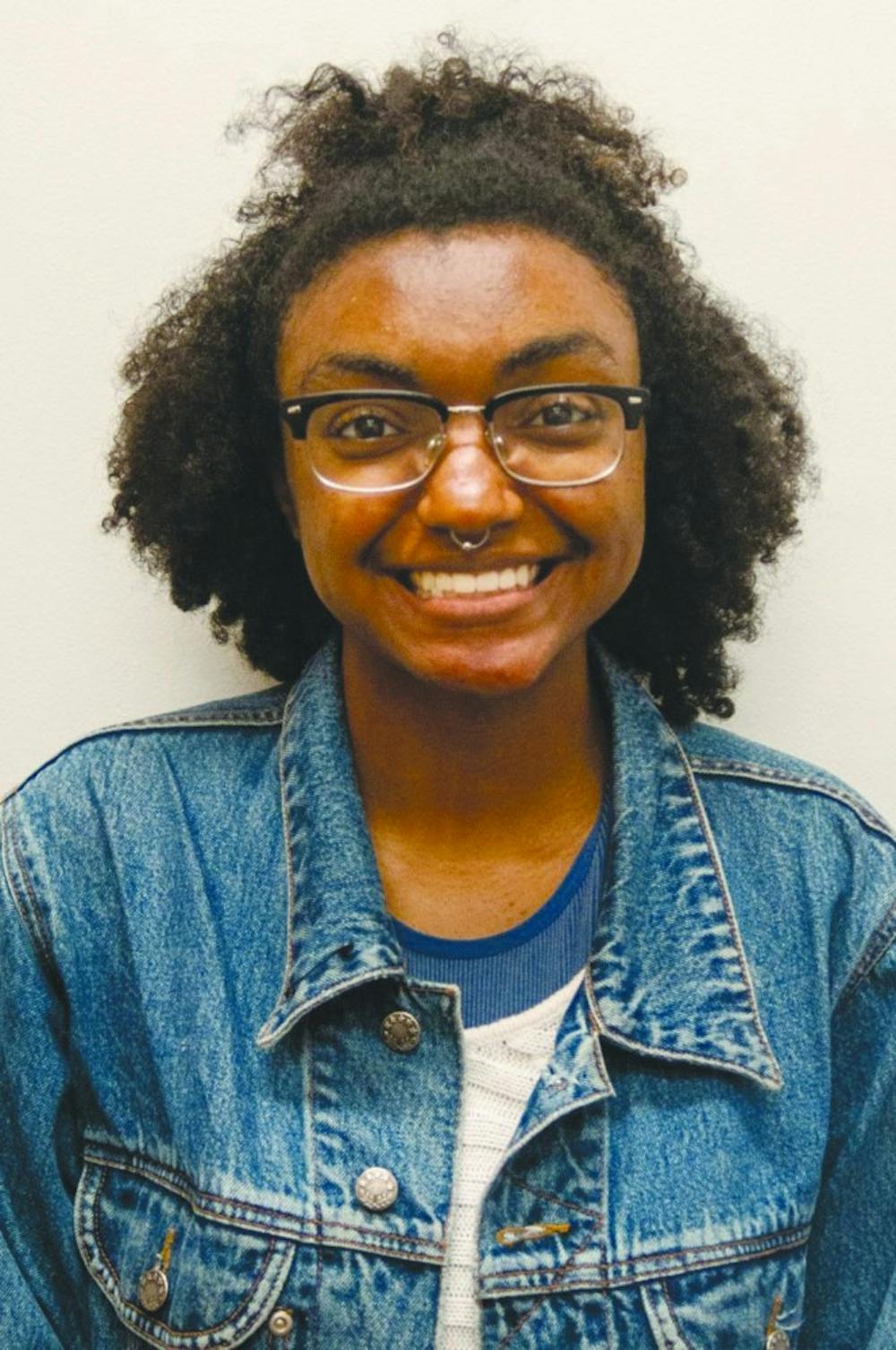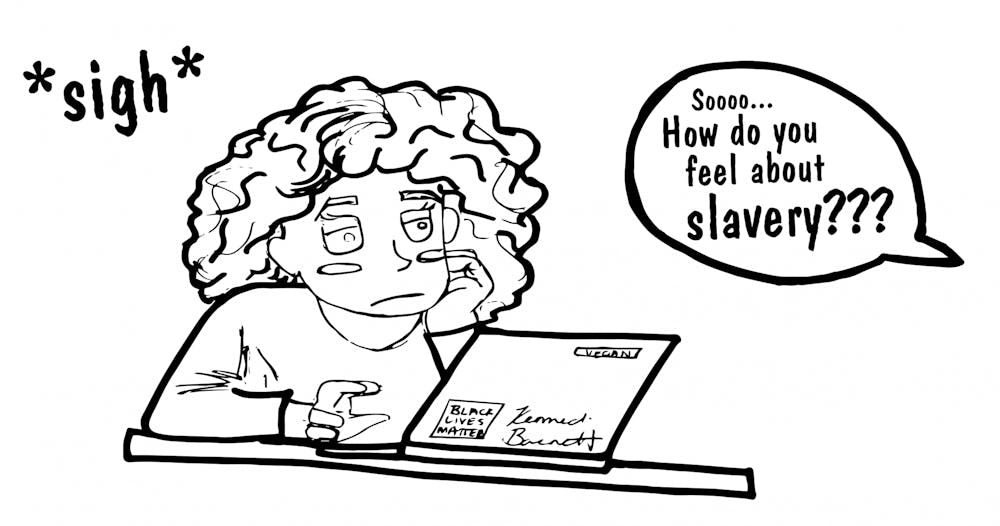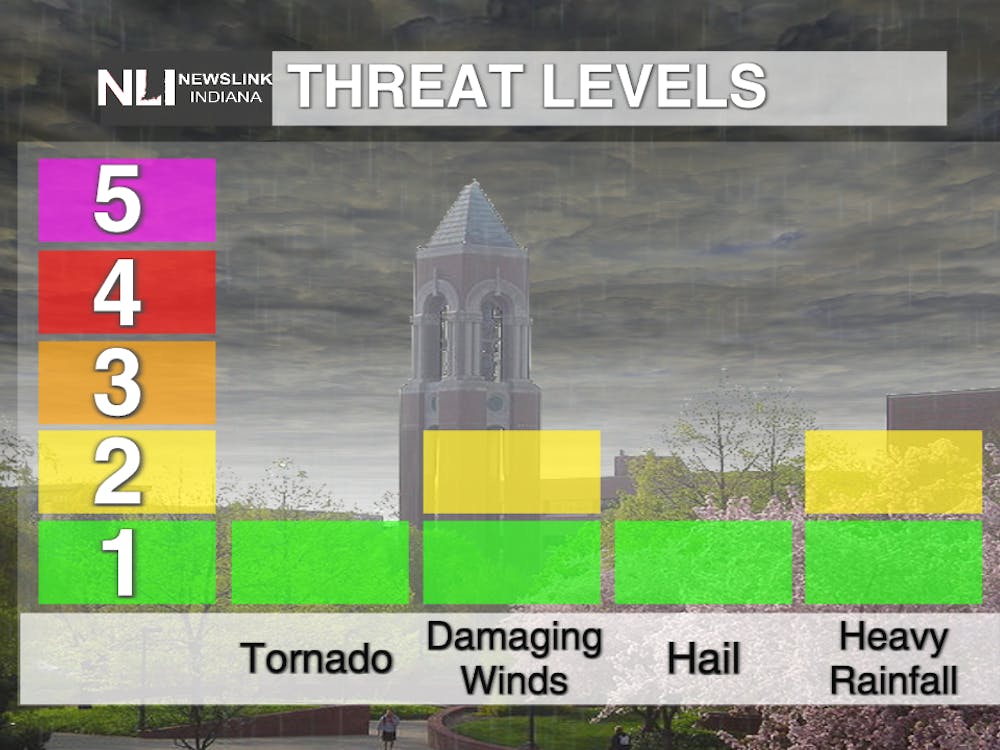
Kennedi Barnett is a junior journalism news major and writes "Kennedi’s Kaleidoscope" for The Daily News. Her views do not necessarily reflect those of the newspaper.
I have beef with Black History Month.
Before you stop reading this and call me self-hating, I want to add that I see the positives of having Black History Month. This is a time to commemorate and recognize progress, and as a black woman, I take deep pride in knowing how far we — not just black people, but the whole world — have come.
I enjoy celebrating that I am not three-fifths of a person; no one can own me, I can vote, I can go to school and, for the most part, I can walk the streets without being harassed. Even considering every race issue this country still has, I am proud of my ancestry and my heritage. My grandmother marched beside Martin Luther King Jr., and my great grandparents married each other knowing their interracial love would be illegal until 1967.
I am very proud to be black. However, Black History Month can be problematic — and honestly, it can be annoying.
For starters, the initial purpose of having Negro History Week was to enforce acceptance of black history so it would become a normal and integrated part of everyday life. Now, I feel it's the month of woke gentrifiers blasting Tupac and N.W.A. while preaching about “the struggle,” and how for Lent they are giving up saying the N-word. And every year, like Christmas, black people are summoned to awkwardly discuss and write about how great it feels to sit at the front of the bus.
Politicians graze over black issues like there is not a clear racial divide still present in America.
My high school teachers and administrators encouraged my friends and I to separate ourselves from race issues as if we aren’t people of color. Race conversations make people, especially privileged people, uncomfortable and angry; therefore, Americans ignore history until it inevitably repeats itself. We see this today with the recent racially-motivated mass shooting in El Paso, which is something that, in theory, should be outdated and old-fashioned.
At some point in lower education, everyone learns about slavery, Martin Luther King Jr. and Rosa Parks. We were all taught about the Emancipation Proclamation, President Obama as the first African American president and the underground railroad, which many people believe was actually underground. These things are taught for a specific period of time, usually a pretty short and nonexhaustive one, but then the rest of the year, students learn about European history. The art, architecture and religions are shoved down our throats as soon as we enter grade school. For a country that was founded by immigrants, for immigrants, everyone does a great job of ignoring all other cultures that were here before colonization and brought here against their will.
Along with this, we are also taught discrimination is over, everyone is free and life is easy, breezy and beautiful. In school, my history teachers actually made a point to teach us Martin Luther King Jr. and President John F. Kennedy ended discrimination and segregation in the United States — like they didn’t live through the 1992 Los Angeles riots.
And to top it all off, we literally ignore the fact there would be no need for “history months” if history was taught and represented correctly. If no one was ever marginalized, why would marginalized people need a month to recognize they are “less” marginalized than they were 60 years ago?
Black History Month is about growth and moving past the racial divide, but ultimately, we would not need it if we were all truly equal.
Americans use Black History Month to over-glorify and over-simplify the path to equality that still continues in America as well as the inequality many black people still face in most of the world.
Americans scream and shout about how they are grateful times have changed and then turn around March 1 and clutch their purses to their chests at the sight of a black man.
I am sure this sounds really ungrateful to colonizers and people who have never dealt with inequality. And maybe I should just suck it up and be grateful I am not a slave and I can use the same water fountain as white people. But, from my experience, Black History Month is the only time black history is actually talked about.
Black History Month should not be an excuse to ignore black history for the rest of the year. Black History Month should not be a time to pretend you care about injustice just because your boyfriend is black but then continue to use slurs and call black women “ghetto” and “ratchet” while you’re doing the same actions that apparently make them “ghetto” and “ratchet.”
But unfortunately, that is what it has become.
It is frustrating to watch history be minimized so heavily that it almost amounts to nothing.
The worst part is most people won’t care because racial issues don’t affect them.
This country is composed of race issues that have gone unexamined and have been poorly dealt with for centuries. Until there are actual systematic changes made to ensure every marginalized person’s equality, we will be stuck in this space of creating trends out of people’s suffering.
Personally, I think a way to change what this month has become is to remember why it started.
The goal was to make sure black history would never be forgotten or repeated; it was to make sure people learned to care.
Maybe this Black History Month, we can try to bring that back.
Contact Kennedi with comments at kpbarnett@bsu.edu.





